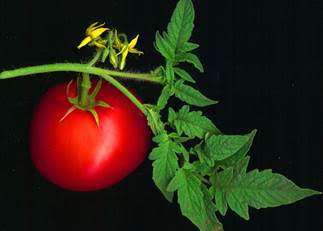Credit: David Besa, Wikimedia
They are a staple in billions of people's diet worldwide, but a soil-borne fungus is threatening the health of tomato plants. Scientists are using novel techniques to understand the relationship between the disease and the soil.
To learn more about what causes disease in tomatoes, a research team from Austria looked at the fungus Fusarium oxysporum and the interaction it has with microorganisms in the soil. The scientists also looked at how different kinds of compost and a charcoal medium, known as biochar, affect the growth of the fungus.
"The interactions of biochar with soil microorganisms are not well known and there remain many uncertainties," said Dr. Gerhard Soja, a soil scientist from the Austrian Institute of Technology. "From the economic point of view, the interactions of biochar and plant pathogens are very interesting."
Soja and his team's work is published in Frontiers in Plant Science. The research is part of ongoing studies to reduce soil degradation and increase soil conservation. These findings may be used to develop soil management measures that decrease the pathogen pressure on tomato crops, and for organic farmers that need to decrease the infection pressure of Fusarium on crops.
"Crop diseases are a constant threat to the global food supply. Any measure that supports the resistance of crops against pests and diseases are welcome because they help to decrease crop losses and post-harvest losses. Preferably crop management measures should be implemented that show additional benefits for soils and crops, that are characterized by efficient use of resources and that support sustainable production systems. Biochar can be one of the pillars of such agricultural production systems."
Adding biochar to soil may provide a management strategy for farmers that could drastically reduce fungal infections.
"There are indirect effects of biochar on plant health that may support the resistance against diseases. Thus pesticide applications may be reduced. However, there are no general recipes for biochar applications to agricultural soils."
More information: "Compost and biochar alter mycorrhization, tomato root exudation, and development of Fusarium oxysporum f. sp. lycopersici." Front. Plant Sci., 10 July 2015 | dx.doi.org/10.3389/fpls.2015.00529
Provided by Canadian Light Source




















